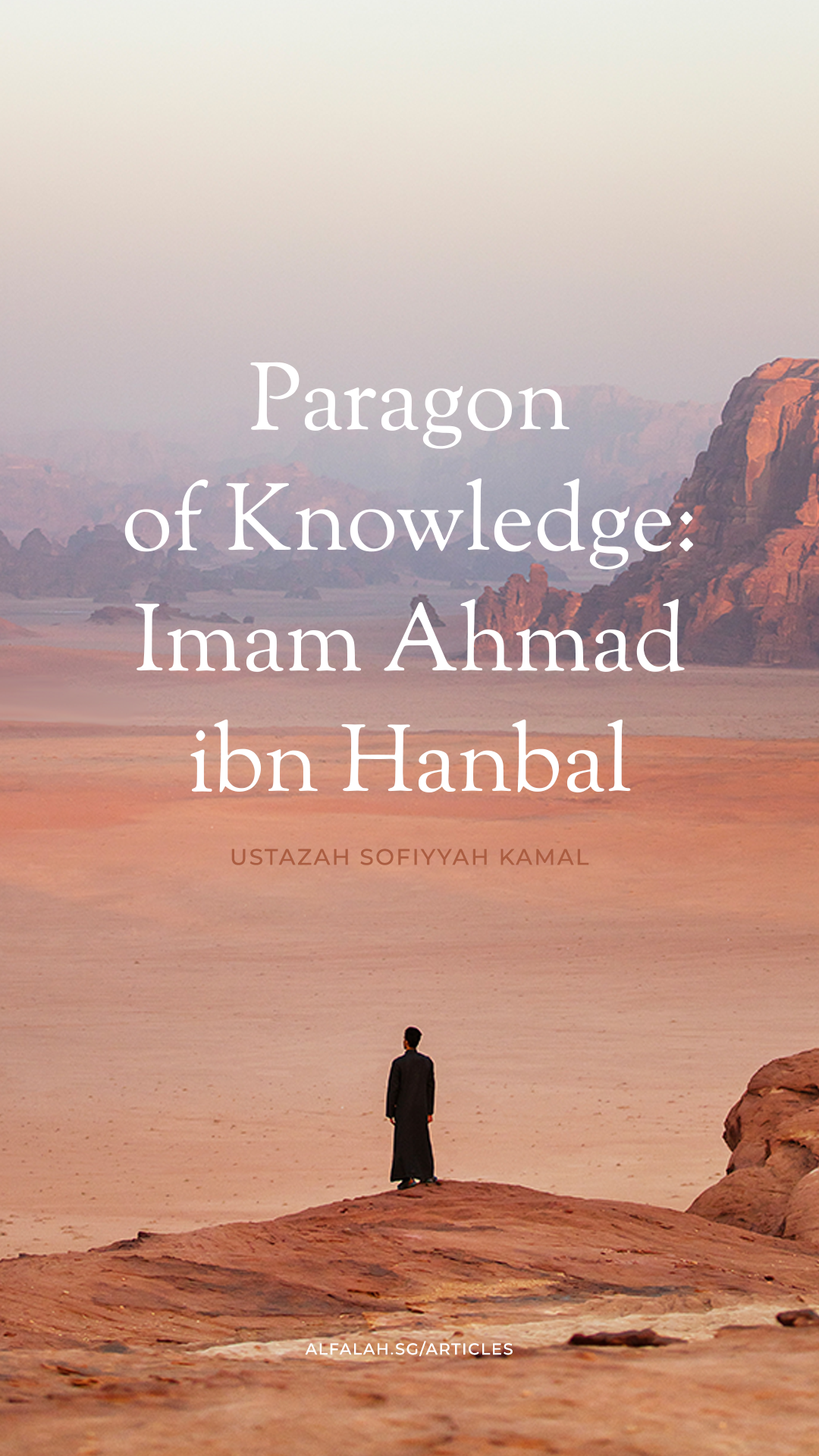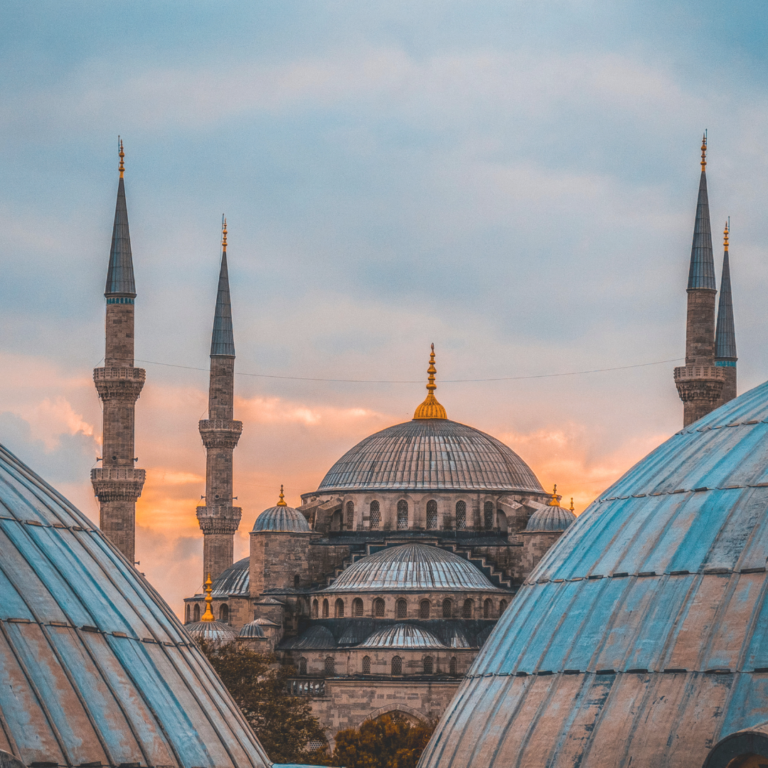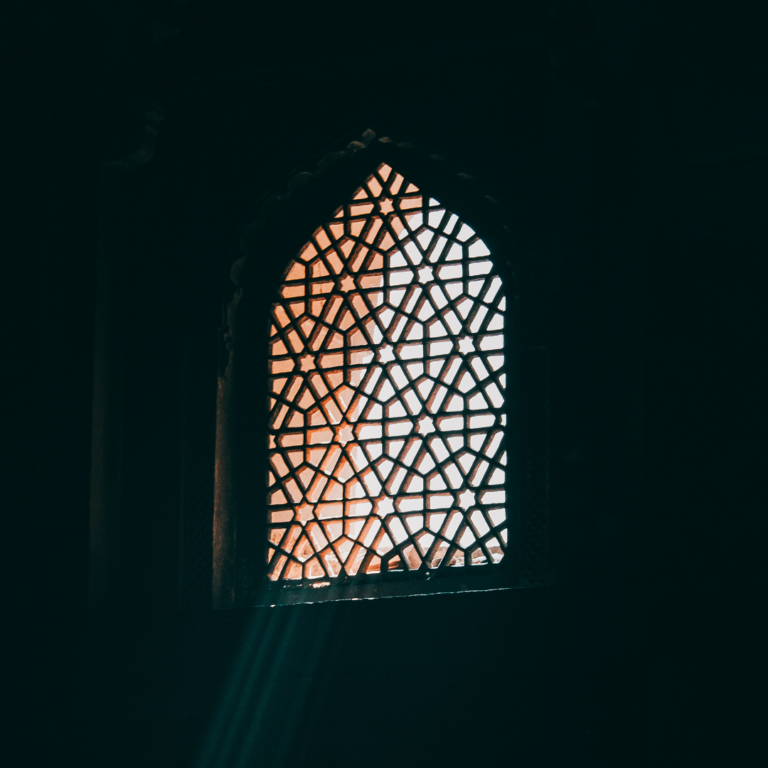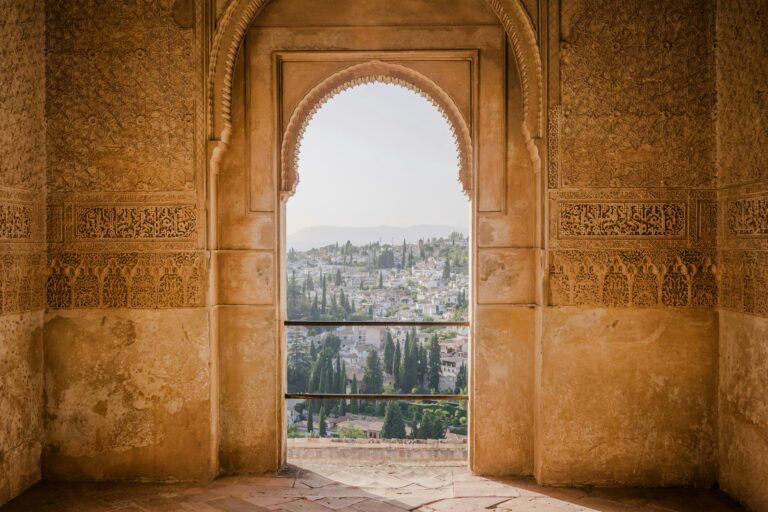Articles
The Merits of Muharram
- BY Ustazah Sharifah Inshirah
- ON
- spirituality, faith, life, barakah

The Merits of Muharram – A new year is often a joyous occasion for many of us. When we utter the words “Happy New Year”, we are reminded of the series of events that each of us have went through. Sweat, tears and blood shed will be engraved in our hearts as we reminisce and approach the first day of the year. We look back and reflect on the good, the bad and the things to improve on. Most importantly, entering a new year is a sign of Allah’s mercy for mankind. If not for His will, Allah SWT would not have allowed for a new day to happen, but with His blessings we are able to meet Muharram again.
When we think about calendars and the new year, many of us are more familiar with the Gregorian version. In this article, I aim to re-introduce Muharram again, as the true new year for Muslims all around the world and expound on its magnificence and beauty in different angles and perspectives.
What is Muharram?
Muharram, in its linguistic term literally means to ‘be forbidden’. The name Muharram which means ‘forbidden’ refers to one of the forbidden months in which war was disallowed amongst the Arabs. It is a period in which the Arabs would abstain from fights and belligerent acts, to respect the sacredness of this month.
إِنَّ عِدَّةَ الشُّهُورِ عِندَ اللّهِ اثْنَا عَشَرَ شَهْرًا فِي كِتَابِ اللّهِ يَوْمَ خَلَقَ السَّمَاوَات وَالأَرْضَ مِنْهَا أَرْبَعَةٌ حُرُمٌ ذَلِكَ الدِّينُ الْقَيِّمُ فَلاَ تَظْلِمُواْ فِيهِنَّ أَنفُسَكُمْ وَقَاتِلُواْ الْمُشْرِكِينَ كَآفَّةً كَمَا يُقَاتِلُونَكُمْ كَآفَّةً وَاعْلَمُواْ أَنَّ اللّهَ مَعَ الْمُتَّقِينَ
“Indeed, the number of months with Allah is twelve months in Allah’s Book, the day when He created the heavens and the earth. Of these, four are sacred. That is the upright religion. So do not wrong yourselves during them. Fight all the polytheists, just as they fight you all, and know that Allah is with the Godwary.” (Surah At-Taubah, Verse 36)
It is then further specified in a hadith:
عَنِ ابْنِ أَبِي بَكْرَةَ، عَنْ أَبِي بَكْرَةَ ـ رضى الله عنه ـ عَنِ النَّبِيِّ صلى الله عليه وسلم قَالَ ”الزَّمَانُ قَدِ اسْتَدَارَ كَهَيْئَتِهِ يَوْمَ خَلَقَ السَّمَوَاتِ وَالأَرْضَ، السَّنَةُ اثْنَا عَشَرَ شَهْرًا، مِنْهَا أَرْبَعَةٌ حُرُمٌ، ثَلاَثَةٌ مُتَوَالِيَاتٌ ذُو الْقَعْدَةِ وَذُو الْحِجَّةِ وَالْمُحَرَّمُ، وَرَجَبُ مُضَرَ الَّذِي بَيْنَ جُمَادَى وَشَعْبَانَ”
The Prophet (ﷺ) said. “(The division of time has turned to its original form which was current when Allah created the Heavens and the Earths. The year is of twelve months, out of which four months are sacred: Three are in succession Dhul-Qa’ da, Dhul-Hijja and Muharram, and (the fourth is) Rajab of (the tribe of) Mudar which comes between Jumadi-ath-Thaniyah and Sha ban.” (Sahih Bukhari 3197)
Amongst the four sacred months, the Prophet SAW mentions that the month of Muharram is the best month to fast after Ramadan. This shows how significant Muharram is, to be placed as the second-best month, after Ramadan, thus manifesting its importance and greatness. In addition to this, it is also agreed upon by many of the Sahabah and scholars such as Ibn Rajab that Muharram is indeed the best of the four sacred months.
Practices in the month of Muharram
The month of Muharram is yet another opportunity to do good and for everyone to maximise its blessings. As believers, we should hasten to good deeds and strive to multiply acts of worship, especially in specific times where Allah SWT has promised to shower His servants with more rewards. In the month of Muharram, the most significant Ibadah is the act of fasting (As-Saum). It is mentioned in several texts on the rewards of fasting in Muharram, and every believing Muslim should not miss this opportunity.
Fasting in Muharram is deemed to be the best fasts outside the blessed month of Ramadan, where the Prophet SAW mentions in a hadith:
عَنْ أَبِي هُرَيْرَةَ، – رضى الله عنه – يَرْفَعُهُ قَالَ سُئِلَ أَىُّ الصَّلاَةِ أَفْضَلُ بَعْدَ الْمَكْتُوبَةِ وَأَىُّ الصِّيَامِ أَفْضَلُ بَعْدَ شَهْرِ رَمَضَانَ فَقَالَ “ أَفْضَلُ الصَّلاَةِ بَعْدَ الصَّلاَةِ الْمَكْتُوبَةِ الصَّلاَةُ فِي جَوْفِ اللَّيْلِ وَأَفْضَلُ الصِّيَامِ بَعْدَ شَهْرِ رَمَضَانَ صِيَامُ شَهْرِ اللَّهِ الْمُحَرَّمِ ” .
“Abu Huraira (Allah be pleased with him) reported that he (the Messenger of Allah) was asked as to which prayer was most excellent after the prescribed prayer, and which fast was most excellent after the month of Ramadan. He said: Prayer offered in the middle of the night and the most excellent fast after (fasting) in the month of Ramadan is the fast in God’s month al-Muharram.”
(Sahih Muslim 1163)
It was in the Sunnah of the Prophet SAW to observe his fasts in the best of manner in the month of Muharram. More so, this was the month the Prophet SAW elevated its status after the month of Ramadan. In the book Tuhfaat Al-Ahwazi, The phrase ‘the most excellent fast after (fasting) in the month of Ramadan is the fast in God’s month al-Muharram’ denotes the excellency of fasting in this month, and the Prophet SAW intended to enjoin people (targhib) to fill this month with the praiseworthy act.
Fasting in a blessed month comes with great reward, and this is specifically so for the fasting of Ashura. The fasting of Ashura, is a specific date that Allah SWT has chosen, falling on the tenth of Muharram (Ashura linguistically means tenth). He SWT has promised for those who fast diligently to be rewarded with the expiation of minor sins throughout the entire year. In a Hadith narrated by Imam Muslim, our beloved Prophet s.a.w made a Doa to Allah SWT to forgive the sins committed in the previous year for all the people who fast on the day of Ashura. Ashura is a special day to Muslims all around the world, and the Prophet SAW was the most eager in fasting on this day as mentioned in another hadith:
Ibn Abbas r.a reported that Rasulullah s.a.w prioritized the fast on the day of Ashura over other days, besides the days in Ramadan, he said: “I have never seen Rasulullah s.a.w so eager to fast like he is for Ashura and prioritizing it, besides Ramadan.”
(Narrated by Al-Bukhari)
The distinguishing factor
In conjunction with Ashura, it is also highly encouraged to do Tasu’ah (ie the fast of the ninth of Muharram). It was mentioned in another hadith:
عَنِ ابْنِ عَبَّاسٍ، قَالَ: قَالَ رَسُولُ اللَّهِ ـ صلى الله عليه وسلم ـ لَئِنْ بَقِيتُ إِلَى قَابِلٍ لأَصُومَنَّ الْيَوْمَ التَّاسِعَ
It was narrated from Ibn ‘Abbas that the Messenger of Allah (ﷺ) said:
“If I live until next year, I will fast the ninth day (of Muharram) too.”
However, the Prophet SAW was not able to fast the year after. Scholars mention that it is ideal to fast on the 9th of Muharram with the day after, to distinguish our Islamic practices with the practices of the Jews. When the Prophet SAW reached Madinah on the month of Muharram, he saw that the Jews would also fast on the 10th of Muharram, in commemoration of the victory of Musa AS. It was on that day that Musa A.S was saved by Allah SWT by the tyrant pharaoh, and such event was worth celebrating and this was especially so for the Jews, who also believed in Musa A.S. The story continues in a narration in the Sahih of Al-Bukhari:
عن ابن عباس رضي الله عنهما قال: قدم النبي صلى الله عليه وسلم المدينة، فرأى اليهود تصوم يوم عاشوراء، فقال: (ما هذا). قالوا: هذا يوم صالح، هذا يوم نجى الله بني إسرائيل من عدوهم، فصامه موسى. قال: (فأنا أحق بموسى منكم) فصامه وأمر بصيامه
“Ibn `Abbās (رضي الله عنهما – May Allah be pleased with them) reported:
The Prophet ﷺ entered Medina and observed the Jews fasting on the Day of `Āshūrā’ (10th of Muḥarram). He asked, ‘What is this?’ They said, ‘This is a righteous day. It is the day that God saved the Children of Israel from their adversary, so Moses fasted.’ The Prophet said, ‘I have a right to Moses greater than theirs.’ Thus, he fasted and ordained fasting for that day.”
When the Prophet SAW mentioned ‘I had a right to Musa AS greater than theirs’, it meant that he (the Prophet SAW) and his religion is more rightful to celebrate this joyous moment as his teachings (Islam) was the one and truly guided. Ashura, despite being a tradition of the Quraysh from before, was further practised until this day with greater meaning and significance.
Conclusion
There is so much to be discussed on Muharram and its merits. It is a month on its own, yet so much can be attained in this blessed period. The Prophet SAW was the most eager in welcoming Muhrram through acts of fasting and enjoining goodness in the Shahrul Haraam. The holy month of Muharram should not be gone to waste for the believer who is constantly seeking the pleasure and forgiveness
Disclaimer
Support Our Dakwah














